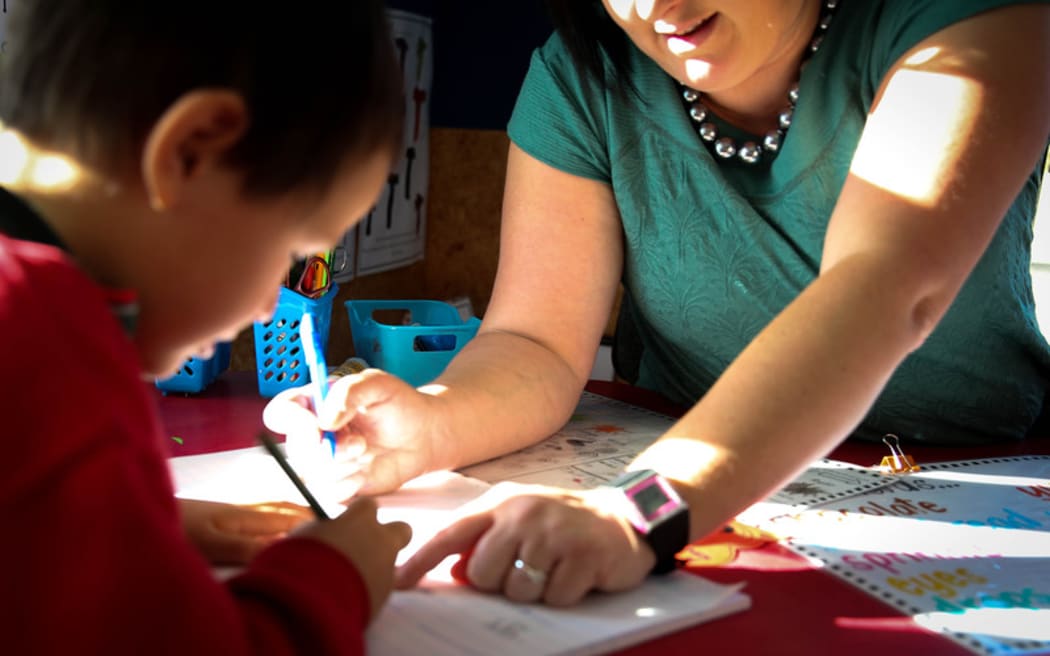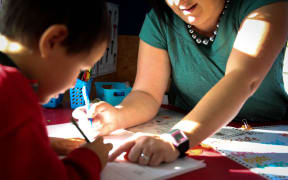The Educational Institute and the Principals Federation are unhappy with the Education Review Office's (ERO) new approach to tackling under-achievement.
ERO is ordering schools where children are doing badly to draw up improvement plans, and is checking on progress six months later.

ERO's new plans are adding to the reporting, planning and bureaucracy schools are already struggling to cope with, the Educational Institute says. (file photo) Photo: RNZ / Alexander Robertson
The new intervention has surprised the federation and the union, which say it is an unnecessary burden on schools that are already doing their best.
Normally ERO places schools it is concerned about on a one- or two-year review cycle, while most other schools go on a three-year cycle and the highest performing on four- or five-year returns.
However, the Raising Achievement Plans are being applied to any school where students are not meeting the national standards in reading, writing and maths, and there is not already a plan for improving achievement.
ERO deputy chief review officer, Māori, Lynda Pura Watson, said it looked first at Māori students' achievement, but it could require Raising Achievement Plans for underachievement by any group of students.
"We look at what's happening for Māori children first and the school unpacks it... Then it may mean that we investigate further by looking at the Pacific children and then we look at whole in terms of all children in the school," she said.
There was no particular benchmark that triggered a plan and even schools on a three year review cycle could be affected.
"Generally schools that don't have achievement plans in place for children who need to have their learning and achievement accelerated will be affected," she said
Of 146 schools reviewed in the past six months, 12 were asked to create plans and 42 to improve existing plans.
The office was trying to work in partnership with schools in the best interests of children, Ms Pura Watson said.
"Everything that we're doing is based on the positive assumption, because of the years of experience in reviewing, that schools have the wherewithal to do what is required.
"We're backing schools to do what they already do well," she said.

The new measures have been described as coming out of the blue. Photo: 123rf
Educational Institute president Louise Green said the achievement plans would have little impact without extra resourcing from ERO or the Education Ministry.
"The principals we've been talking to are contending that they've been working on raising Māori achievement and raising achievement of all children, that's what they do, so the plans alone are not going to do anything."
The plans and six-monthly checks were adding to the reporting, planning and bureaucracy that schools were struggling to stay on top of, she said.
"People are just saying this is just too much on top of an already full-on job and accountability."
Principals Federation president Iain Taylor said the new measures had come out of the blue.
Principals did not understand why ERO was applying the new requirements to schools that had received good review reports.
"If a school needs to improve, a follow-up review, support is absolutely good. But what we don't understand is if a school is deemed to be successful, gets a three year review, why would they be getting reviewed again over one specific issue within six months."
Principals were worried their schools would be judged solely on their national standards results with little regard for the outside factors that influenced achievement, such as transience and absence.
"They assure us they take into account the full picture of the school life of a child. Well, that's pretty hard to believe though because all you ever hear about is national standards and the results of that data."
Secondary Principals Association president Sandy Pasley said there were factors beyond schools' control, but ERO focussed on students who were falling behind.
"It's quite hard to blame it all on the schools I feel. But certainly what it does do I think is put a spotlight on students who are not at the standard and really it requires schools to say what they're doing about those students to make sure they get up to the standard."







